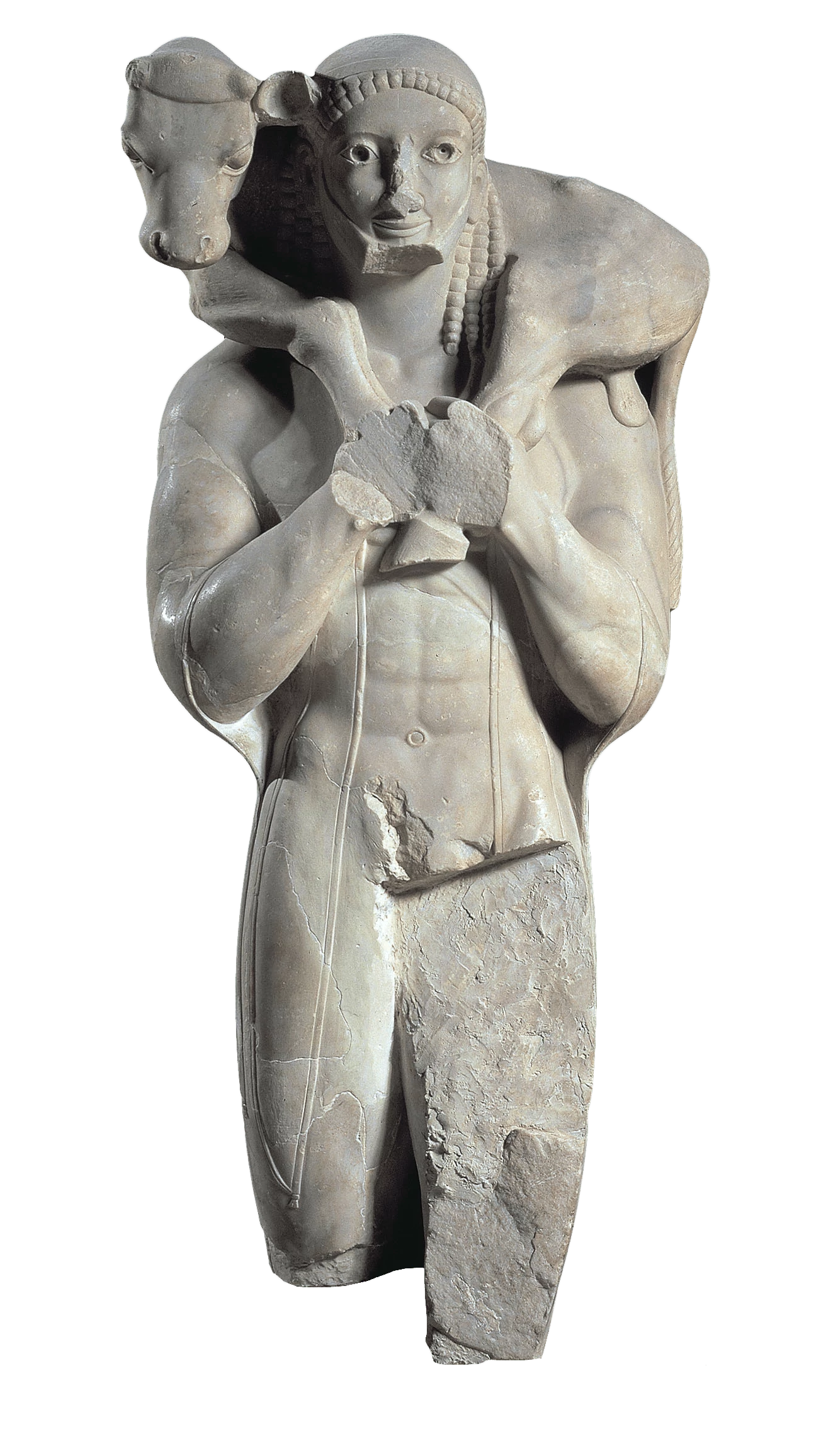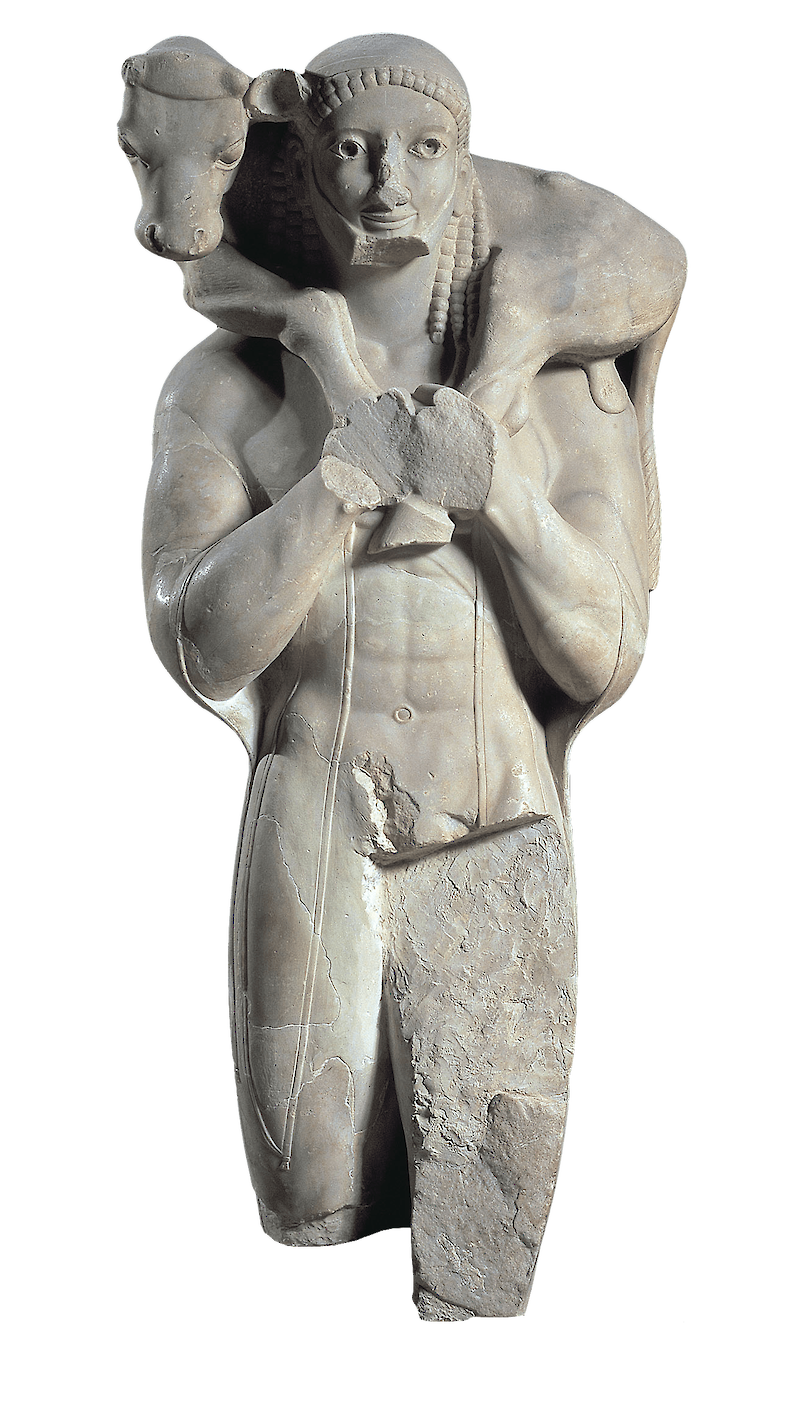


Ancient Greece loved perfect men. In the Archaic period an entire genre of sculpture was dedicated to a very specific representation of the nude male body. Kouros, meaning ‘youth or boy of noble rank’ figures were formal, heavily stylized, freestanding sculptures, almost more akin to Ancient Egyptian depictions of pharaohs than the expressive Hellenistic postures that came to define Greek sculpture in later centuries.
This particular Kouros, excavated from the rubble of the Athens Acropolis, deviates from the common style. He is bearded, representing maturity, and wears a light cloak, the mark of a respectable citizen—and most unusual for its era, this man is smiling. These details, along with a dedication inscription to the goddess Athena, suggests that this kouros was made in the image of a wealthy local named [Rh]ombos. Also unusual for its time, the base of this statue was signed by the sculptor Phaidimos, the first known Attic sculptor to sign his work.
But what’s with the cow? Many religious cults in Ancient Greece sacrificed animals to the gods. Kriophoros, or ‘ram-bearers,’ commemorate these sacrifices with male figures carrying the doomed animal on their shoulders as was the custom among shepherds. Sheep were most often the sacrificial animals, but this young bull was almost certainly an offering to win the blessings of Athena.
